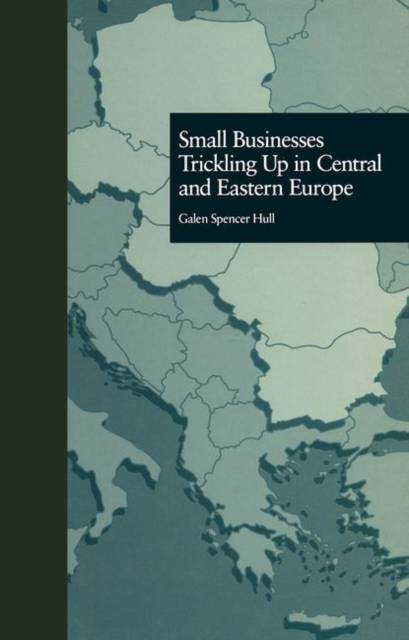
- Afhalen na 1 uur in een winkel met voorraad
- Gratis thuislevering in België vanaf € 30
- Ruim aanbod met 7 miljoen producten
- Afhalen na 1 uur in een winkel met voorraad
- Gratis thuislevering in België vanaf € 30
- Ruim aanbod met 7 miljoen producten
Zoeken
Omschrijving
First Published in 1999. Small Businesses Trickling Up in Central and Eastern Europe argues that micro-, small, and medium-sized enterprises in selected countries of Central and Eastern Europe (CEE) have been the key to economic growth rather than privatized large-scale enterprises. Small businesses have come to constitute the most dynamic element of growth in the emerging markets of the CEE region in the last decade. In 1989, most of the countries of the region were still under the political and economic domination of the Soviet Union. Since then a process of liberalization has been unleashed in the region to dismantle statist economic policies and replace them with free market policies. This has involved programs of privatization and restructuring of state-owned enterprises, as well as the promotion of policies to enable a private sector to develop. Small businesses are creating thousands of new jobs while large companies are retrenching and downsizing their workforce. In some countries of the region this process is much further along than in others. In each country, however, the small and medium enterprise (SME) sector has developed at a more rapid pace than has the privatization of the large public companies. The privatization of small and medium-sized state-owned enterprises has been rather more successful. With the economic transition there has been a flurry of new enterprises springing up throughout the region, some registered as legal entities but many micro-enterprises often remaining unregistered in the informal sector. Micro-enterprises are increasingly seen as an important element of this SME sector, although they were traditionally treated separately as belonging to the informal sector and a detriment to economic growth.
Specificaties
Betrokkenen
- Auteur(s):
- Uitgeverij:
Inhoud
- Aantal bladzijden:
- 764
- Taal:
- Engels
Eigenschappen
- Productcode (EAN):
- 9780815332046
- Verschijningsdatum:
- 1/01/1999
- Uitvoering:
- Boek
- Afmetingen:
- 138 mm x 216 mm
- Gewicht:
- 1269 g

Alleen bij Standaard Boekhandel
+ 397 punten op je klantenkaart van Standaard Boekhandel
Beoordelingen
We publiceren alleen reviews die voldoen aan de voorwaarden voor reviews. Bekijk onze voorwaarden voor reviews.







